News in Brief
-
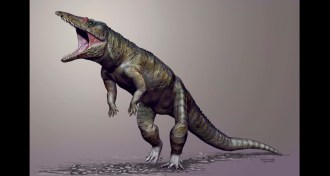 Paleontology
PaleontologyFearsome croc called the Carolina Butcher once ruled the north
Early ancestors of crocodiles, not dinosaurs, may have been northern Pangaea’s top predator 230 million years ago, according to a new fossil find.
-
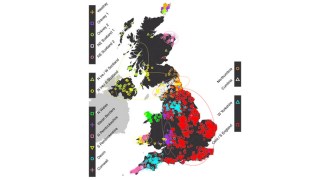 Humans
HumansHistory of the United Kingdom revealed in its genes
A genetics study finds subtle differences that reveal secrets about the history and ancestry of England, Scotland, Wales and Northern Ireland.
-
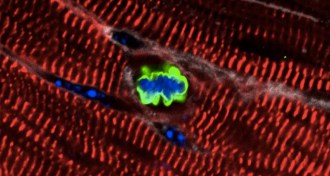 Health & Medicine
Health & MedicineFor heart repair, call RNA
Mice regrow muscle cells after heart attacks if injected with molecules mimicking RNA involved in cell growth.
-
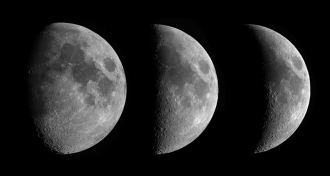 Astronomy
AstronomyFast-spinning young Earth pulled the moon into a yo-yo orbit
The early moon’s orbit created a cycle between lunar phases unlike the one seen nowadays.
-
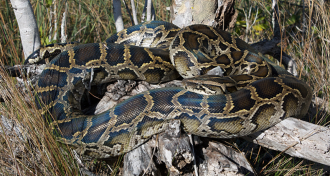 Ecosystems
EcosystemsEven fast-breeding rabbits can’t withstand Everglades python invasion
Even marsh rabbits in the Everglades can’t breed fast enough to keep their population going when Burmese pythons warm up for summer hunting.
By Susan Milius -
 Health & Medicine
Health & MedicineAspirin, other painkillers may not reduce colorectal cancer risk for everybody
Aspirin and NSAIDs appear widely protective against colorectal cancer, but not for everyone.
By Nathan Seppa -
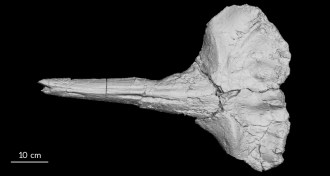 Paleontology
PaleontologyRise of East African Plateau dated by whale fossil
A whale fossil is helping to pinpoint when the East African Plateau started to rise and how the uplift played a role in human evolution, scientists say.
-
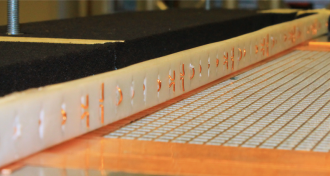 Materials Science
Materials ScienceCopper-wire ‘metamirror’ reflects selectively
A metamaterial mirror reflects only a single wavelength of light, potentially leading to more compact and affordable radio antennas.
By Andrew Grant -
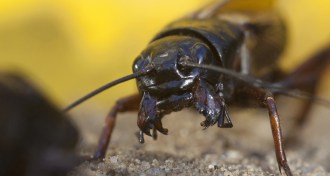 Animals
AnimalsA brain chemical tells when to fight or flee
Crickets tally the knocks they take in a fight, and flee when their brains release nitric oxide to tell them they’ve had enough.
-
 Archaeology
ArchaeologyRing brings ancient Viking, Islamic civilizations closer together
Ancient find fingers ninth century connection between Vikings and Islamic civilization.
By Bruce Bower -
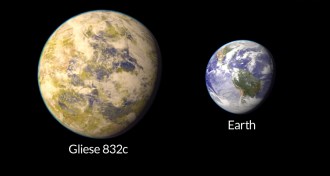 Astronomy
AstronomySuper-Earths may form in two ways
Rocky planets much heavier than Earth may form in different ways.
-
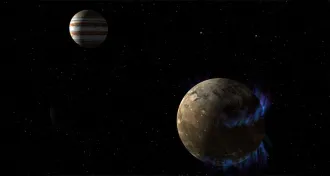 Planetary Science
Planetary ScienceAurora shift confirms Ganymede’s ocean
New observations confirm the presence of a liquid saltwater ocean beneath the surface of Jupiter’s largest moon, Ganymede.